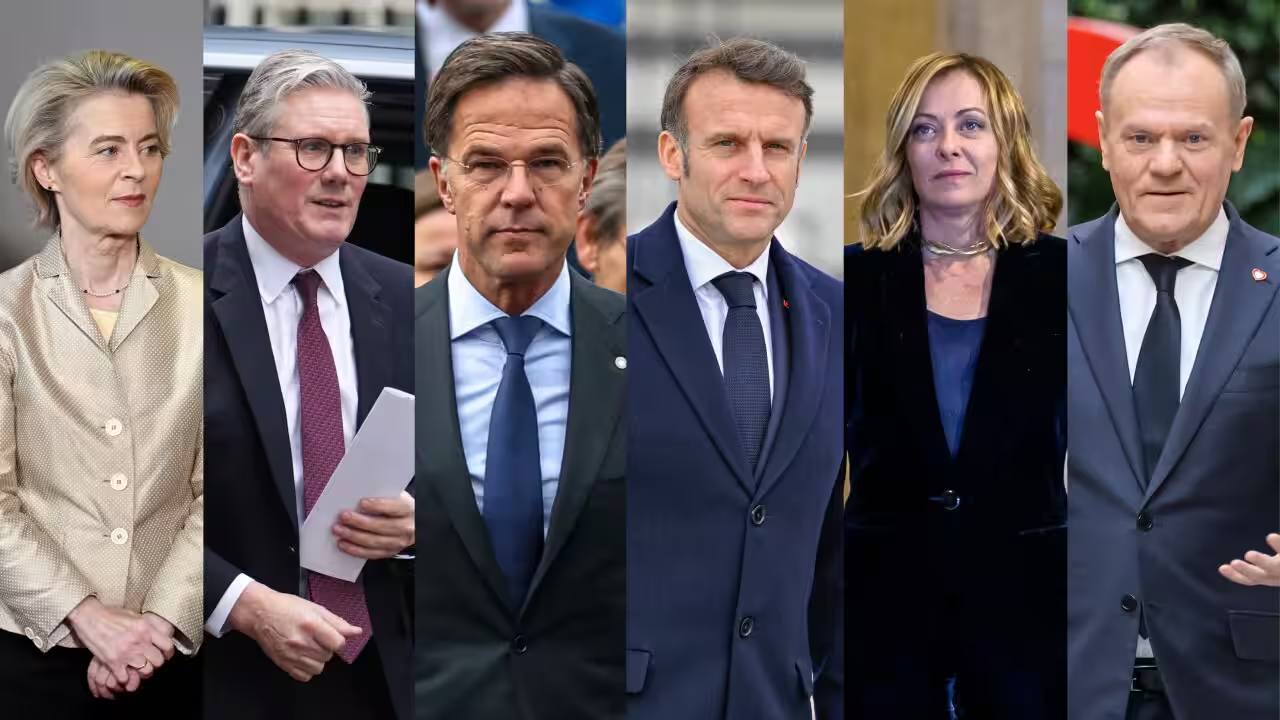European leaders are preparing to convene next week for an emergency summit on the war in Ukraine amid growing concerns that the U.S. is advancing peace talks with Russia without European involvement.
Sir Keir Starmer, who is set to attend the summit in Paris, described the moment as a “once-in-a-generation” opportunity to address national security and emphasized that Europe must assume a larger role in NATO.
This development follows comments from Donald Trump’s special envoy to Ukraine, who stated that while European leaders would be consulted, they would not be direct participants in negotiations between the U.S. and Russia to end the conflict.
Senior White House officials, including U.S. Secretary of State Marco Rubio, are scheduled to engage in discussions with Russian negotiators in Saudi Arabia in the coming days. U.S. officials have claimed that Ukraine has been invited to these discussions, although President Volodymyr Zelensky has denied receiving such an invitation.
Special envoy Keith Kellogg made remarks that are likely to provoke concern among Ukraine and its European allies, asserting that previous negotiations failed due to an excessive number of parties involved.
“It may be like chalk on the blackboard, it may grate a little bit, but I am telling you something that is really quite honest,” Kellogg said on Saturday.
Europe remains wary of the Minsk agreements, the 2015 ceasefire deal between Ukraine and Russia that was brokered by France and Germany but ultimately failed to prevent further conflict in the Donbas region.
Sir Keir reportedly sees his role as a mediator between the U.S. and Europe to ensure a unified approach to securing peace in Ukraine.
The UK Prime Minister is expected to discuss the perspectives of European leaders when he meets with U.S. President Donald Trump at the White House later this month.
Following Sir Keir’s return from Washington, a subsequent meeting involving European leaders and Zelensky is anticipated.
Sir Keir reiterated that the UK would “work to ensure we keep the U.S. and Europe together,” stressing that the alliance could not “allow any divisions to distract” from “external enemies.”
“This is a once-in-a-generation moment for our national security, where we engage with the reality of the world today and the threat we face from Russia,” he said.
“It’s clear Europe must take on a greater role in NATO as we work with the United States to secure Ukraine’s future and confront the threats posed by Russia.”
Polish Foreign Minister Radoslaw Sikorski revealed that French President Emmanuel Macron had called for the summit of European leaders, though Macron has yet to officially announce it.
Sikorski remarked: “President Trump has a method of operating, which the Russians call reconnaissance through battle. You push and see what happens, and then you change your position—a legitimate tactic. And we need to respond.”
Earlier on Saturday, Zelensky called for the establishment of a unified “army of Europe” as concerns mount that the U.S. may not come to the continent’s defense.
Speaking at the Munich Security Conference, he highlighted U.S. Vice President JD Vance’s speech, which he said demonstrated that the traditional relationship between Europe and America was “changing” and that the continent “must adapt.”
Zelensky also made it clear that Ukraine “will never accept deals made behind our backs without our involvement” in reference to Trump and Russian President Vladimir Putin’s agreement to commence peace talks.

Earlier this week, Trump disclosed that he had engaged in an extended phone call with Putin, during which they agreed to launch immediate negotiations to halt the “ridiculous war” in Ukraine. Following this, Trump “informed” Zelensky of his plan.
Confident in his diplomatic approach, Trump suggested his leadership style could facilitate a peace agreement in Ukraine. His renewed engagement with Putin marked the end of more than three years of silence between Washington and Moscow.
Trump’s surprise announcement evoked memories of his 2018 Helsinki summit with Putin.
During that meeting, the two leaders held nearly two hours of private discussions in the Finnish capital before delivering a joint press conference where Trump controversially defended Russia against allegations of meddling in the 2016 U.S. presidential election.
His remarks at the time were at odds with U.S. intelligence agencies, which had concluded that Russia orchestrated a state-sponsored cyberattack and disinformation campaign aimed at influencing the election against Hillary Clinton.
On Saturday, U.S. Secretary of State Marco Rubio also held a phone conversation with Russia’s foreign minister, which officials described as “building on” Trump’s February 12 call with Putin.
Senior officials from the Trump administration are set to commence peace negotiations with Russian and Ukrainian representatives in Saudi Arabia in the coming days, according to U.S. Representative Michael McCaul, who spoke to Reuters.
McCaul, chairman of the House Foreign Affairs Committee, indicated that he believed Zelensky had been invited to participate in the Saudi discussions, which are intended to facilitate a direct meeting between Trump, Putin, and the Ukrainian president to “finally bring peace and end this conflict.”
A day earlier, Vance delivered a blistering critique of European democracies, asserting that the most significant threat to the continent was not external powers like Russia and China, but “from within.”
Speaking at the Munich Security Conference, he reiterated the Trump administration’s stance that Europe must “take greater responsibility for its own defense.”
UK Foreign Secretary David Lammy echoed similar concerns, stating that the UK and EU nations must increase defense spending. He emphasized that Europe faces an “existential challenge” even in the event of a negotiated peace in Ukraine.
Addressing the Munich Security Conference on Saturday, Lammy warned, “Putin will not go away,” and while it was encouraging that 23 NATO countries now allocate at least 2% of their GDP to defense, “we all know we must go further.”


